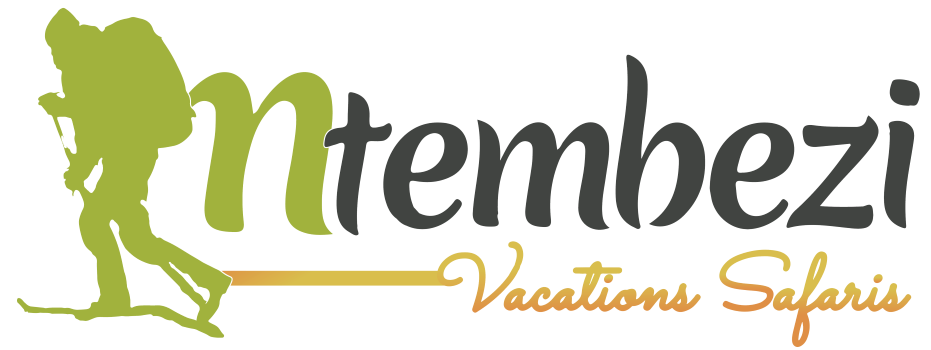18-Day Masai Mara & Gorilla Trekking Safari
Itinerary summarized for you
Incredible landscapes, beautiful sunsets, starry nights and arguably the best wildlife encounters in the world. Between game driving in Lake Nakuru and Masai Mara to the Chimpanzee and gorilla trekking safari in the Ugandan wilderness, you’ll be sure to leave this 18-day tour with more photographs and memories than imaginable.
- Day 1: Transfer from Nairobi to Lake Nakuru National Park
- Day 2: Transfer from Lake Nakuru to Eldoret
- Day 3: Eldoret – Kampala
- Day 4: Kampala to Queen Elizabeth National Park
- Day 5: Queen Elizabeth National Park
- Day 7: Lake Bunyonyi
- Day 9: Lake Bunyonyi to Kampala
- Day 10: Kampala – Jinja
- Day 11-12: Jinja
- Day 13: Jinja – Eldoret
- Day 14: Eldoret – Nairobi
- Day 15: Nairobi
- Day 17: Maasai Mara Reserve, Kenya
- Day 18: Maasai Mara Reserve, Kenya – Nairobi
Detailed Itinerary: 18-Day Masai Mara & Gorilla Trekking Safari
Day 1: Transfer from Nairobi to Lake Nakuru National Park
Kenya is a highly sought-after safari destination in East Africa with a rich tradition of tourism. Nairobi, the capital, boasts a compact city centre, vibrant markets, craft shops, bookstores, and a variety of cafes and restaurants. We recommend arriving at least a day before the tour begins to explore the city and acclimate to any jet lag. Our journey starts early from Nairobi as we descend into the impressive ‘Great Rift Valley,’ a massive geological cleft stretching from the Red Sea to Madagascar. We pause at a lookout point to marvel at the breathtaking views. Our overnight stop is Lake Nakuru National Park, a relatively small yet wildlife-rich park located on the floor of the Great Rift Valley. The shallow soda lake attracts a diverse array of birdlife, particularly flamingos. However, Lake Nakuru is not just a bird sanctuary; it’s also home to buffalo, lion, rhino, leopard, warthog, baboon, antelope, and various smaller animals. An afternoon game drive, guided by locals in smaller safari vehicles for a more intimate experience, introduces us to East Africa’s diverse wildlife.
- Accommodation: Punda Milias Camp (or similar) – Camping in twin shared tents with shared facilities
- Meals: Lunch, Dinner
Day 2: Transfer from Lake Nakuru to Eldoret
Continuing northwest from Nakuru, we ascend in altitude towards Eldoret on our way to the Ugandan frontier. Crossing from the Southern Hemisphere to the Northern Hemisphere, we pause at the Equator to learn about its significance and capture photos before heading to Eldoret. The name ‘Eldoret’ originates from the Maasai word ‘Eldore,’ meaning stony river, referencing the stony bed of the nearby Sosiani River. The town, the 5th largest in Kenya, is the fastest-growing, with a population of approximately 194,000. Camping outside of town in a unique campsite situated on hilly forest tribal land, once inhabited by the ancient Sirikwa tribe, offers a distinctive experience. Excavations with stone sides, known as Sirikwa holes, believed to have been roofed and occupied by ancient inhabitants, are preserved on the site.
- Accommodation: Naiberi Overland Camp (or similar) – Camping in twin shared tents with shared facilities
- Meals: Breakfast, Lunch, and Dinner
Day 3: Eldoret – Kampala
We cross into Uganda, often referred to as Winston Churchill’s ‘Pearl of Africa.’ Uganda boasts beautiful natural scenery, a diverse mosaic of tribes and cultures, and friendly people. Our first night in Uganda is spent camping in the capital, Kampala, an attractive hilly city bustling with roadside traders, markets, and busy matatu (mini-bus taxi) stands. Note that some group members may commence their tour in Kampala.
- Accommodation: Red Chilli Camp (or similar) – Camping in twin shared tents with shared facilities
- Meals: Breakfast, Lunch, Dinner
Day 4: Kampala to Queen Elizabeth National Park
Heading west from Kampala towards Queen Elizabeth National Park, we cross the Equator again, traversing fertile green terraced hillsides, lush banana plantations, steep mountains, and tangled forests. From the Acacia vehicle, we may spot herds of Ankole cattle with their remarkably long, curving horns roaming the roads and paddocks. Camping near Queen Elizabeth National Park allows for relaxation, walks in the surrounding areas, and interaction with the local community.
- Accommodation: Simba Camp (or similar) – Camping in twin shared tents with shared facilities
- Meals: Breakfast, Lunch, Dinner
Day 5: Queen Elizabeth National Park
Chimpanzee trek permits are issued in groups, and depending on our group size, we may embark on the trek on the afternoon of day 4 or the morning of day 5.
- Accommodation: Simba Camp (or similar) – Camping in twin shared tents with shared facilities
- Meals: Breakfast, Lunch, Dinner
Day 6: Queen Elizabeth National Park to Lake Bunyonyi
Leaving the picturesque hills of the national park, we journey to the lush and stunning Lake Bunyonyi, also known as the ‘Place of Many Little Birds.’ This lake, surrounded by undulating hills, offers a serene environment. With the second-deepest lake in Africa and numerous islands, Lake Bunyonyi is an ideal place to unwind, relax, and explore on days when not trekking to see the mountain gorillas. The group will be divided over the next two days, with one group trekking the mountain gorillas and the others enjoying the activities around Lake Bunyonyi.
- Accommodation: Lake Bunyonyi Overland Stop / Gorilla Trek area (or similar) – Camping in twin shared tents with shared facilities
- Meals: Breakfast, Lunch & Dinner
Day 7: Lake Bunyonyi
Today offers a choice between a day of rest or embarking on a gorilla trek. If not participating in the trek, you can explore the surrounding area, take a boat trip to discover the islands on Lake Bunyonyi, or simply relax at the campsite. Accommodation is provided at Lake Bunyonyi Overland Stop or in the Gorilla Trek area, featuring camping in twin-shared tents with shared facilities.
- Accommodation: Red Chilli Camp or similar includes camping in twin-shared tents with shared facilities.
- Meal: breakfast, lunch, and dinner.
Day 9: Lake Bunyonyi to Kampala
Returning from Lake Bunyonyi, we cross the Equator, stopping for a photo if not done previously, and travel through lush pasture lands and the northern part of Lake Victoria, Africa’s largest lake. The journey concludes in Kampala, where we camp and have the opportunity to explore the vibrant local food and entertainment scene. Some group members may conclude their tour in Kampala.
- Accommodation: Red Chilli Camp or similar includes camping in twin-shared tents with shared facilities.
- Meals: breakfast, lunch, and dinner.
Day 10: Kampala – Jinja
Leaving Kampala, we drive to Jinja, a town situated on the banks of Lake Victoria and the Nile. Jinja holds historical significance as the place where British explorer John Hanning Speke identified Lake Victoria as the ‘source of the Nile’ in 1862. Camped by the Nile River, optional activities include thrilling river rafting, contributing to a local school project, mountain biking, quad biking, village walks, and Nile cruises.
- Accommodation: Nile River Explorers or similar features, camping in twin-shared tents with shared facilities.
- Meals: Breakfast, lunch, and dinner.
Day 11-12: Jinja
Enjoy free time or participate in optional activities, such as white-water rafting for adrenaline enthusiasts or exploring the local community.
- Accommodation: Nile River Explorers or similar includes camping in twin-shared tents with shared facilities.
- Meals: breakfast, lunch, and dinner.
Day 13: Jinja – Eldoret
Retracing our steps into Kenya, we head to Eldoret for an overnight camp stay.
- Accommodation: Naiberi Overland Camp or similar includes camping in twin-shared tents with shared facilities.
- Meals: breakfast, lunch, and dinner.
Day 14: Eldoret – Nairobi
Crossing the Equator again, we travel south to Nairobi, stopping just outside the city. The evening offers the option to explore Nairobi’s nightlife or dine at the renowned Carnivore Restaurant.
- Accommodation: Wildebeest Eco Camp or similar features camping in twin-shared tents with shared facilities.
- Meals: breakfast, lunch, and dinner.
Day 15: Nairobi
A free day allows exploration of the city and its surroundings. Optional excursions can be arranged, such as visiting markets, the National Museum of Kenya, Nairobi National Park, or the Daphne Sheldrick Elephant Orphanage. Relaxation is also an option.
- Accommodation: twin-shared tents and shared facilities
- Meals: breakfast, lunch, and dinner.
Family Safari in the City
Day 16: Nairobi – Maasai Mara Reserve, Kenya
Departing early from Nairobi, we travel to the Maasai Mara National Reserve, crossing the Great Rift Valley. Small, specialized safari vehicles offer an intimate wildlife-viewing experience. Two nights are spent camping on the Reserve’s edge, with morning and afternoon game drives.
- Accommodation: Maasai Mara – Enchoro Wildlife Camp or similar features twin/triple-share pre-erected tents with en-suite facilities.
- Meals: breakfast, lunch, and dinner.
Day 17: Maasai Mara Reserve, Kenya
The day is dedicated to exploring the Reserve for wildlife, including the ‘big 5.’ The Mara is known for its sweeping plains, acacia trees, and abundant wildlife, making it a memorable experience. Lunch is provided, and we return to the tented camp in the evening.
- Accommodation: Maasai Mara – Enchoro Wildlife Camp or similar includes twin/triple-share pre-erected tents with en-suite facilities.
- Meals: Breakfast, lunch, and dinner.
Day 18: Maasai Mara Reserve, Kenya – Nairobi
Returning from the Mara, we journey back across the Great Rift Valley to Nairobi, concluding the tour in the late afternoon.
- Meals: breakfast and lunch.
End of 18-Day Masai Mara and Gorilla Safari
Safari Inclusions
- Lunch
- Bottled Water
- Accommodation (17 nights)
- Safari 4×4 Vehicle
- Gorilla permit and park fees
- English-speaking guide
Safari Exclusions
- Visas and International flights
- Tips

